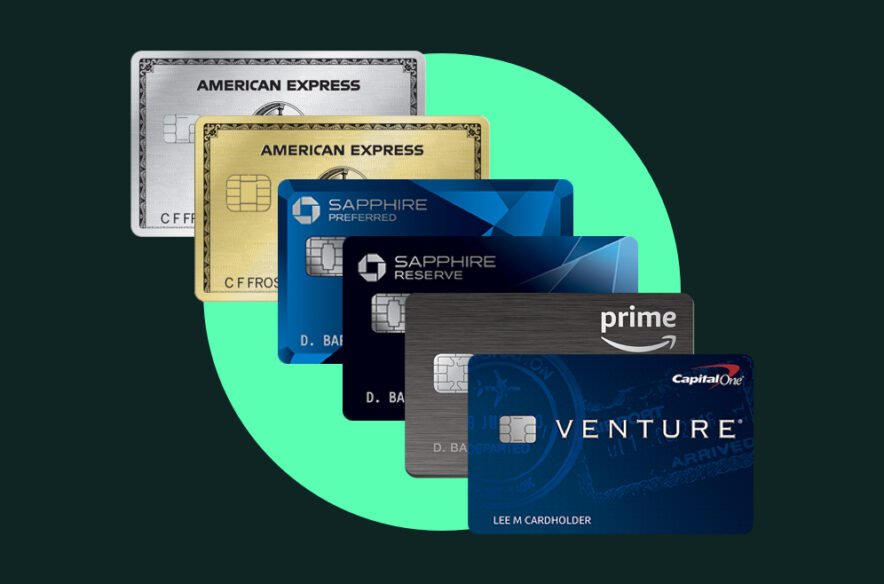Although a credit card is part of science, it is also part of art. No single credit card is better for all people or in all categories. But you can get the right card for your credit situation and spending habits when you understand your options, and ask the right questions. Below are four easy steps to make it easy for you to choose the best credit card.
1. Check Your Credit
Make use of your credit score to get the right credit card offers; you will use this to know your eligibility status. The better your score, the better your chance of being selected for cards with better perks. Some of the ways to check your score include:
- You will get free FICO scores from many credit card issuers
- NerdWallet, which offers free access to different credit scores
- The three main credit bureaus (TransUnion, Experian, and Equifax) sell credit scores.
If the number you get was not what you expected, you could check your credit reports to see where the problem comes from. You can also look for ways to improve the number by disputing the error on your reports or by changing your spending habits if you need to. According to federal law, you are entitled to get a free copy of your credit report every 12 months from each of the three main credit bureaus. You can get your annual free report at AnnualCreditReport.com.

2. Identify The Type Of Credit Card You Need
We have three main types of credit cards, and these include:
1. Cards that earn rewards
2. Cards that save you money on interest.
3. Cards that help you boost your credit when it’s damaged or limited.
You need to choose the best card for you based on your specific needs. If you are not a traveler, then you wouldn’t need the best travel card because you will not benefit from the offers.
REWARDS, TRAVEL, OR CASHBACK (FOR THOSE WHO WANT TO EARN REWARDS) – This is a great card for travelers who are always using their cards to book travel, and it does not incur interest. The reward cards have higher APRs, and they give you miles, points, or cash in return.
0% APR LOW-INTEREST, OR BALANCE TRANSFER CARD (FOR THOSE WHO WANT TO SAVE ON INTEREST) – This is a card with an introductory 0% APR, and it offers an ongoing low interest in case you have an irregular income, or you are planning to use your credit card for emergencies. This balance transfer card is useful if you will not like to pay high-interest debt interest-free. You may not be able to enjoy this offer if you have poor or average credit.
STUDENT OR SECURED CREDIT CARD (IF YOU WILL LIKE TO BUILD OR REBUILD CREDIT) – The student credit cards are unsecured cards designed for students who are new to credit. All students can qualify for this card, unlike any other credit card. The secured credit cards of this same type require a deposit of $200 as a security fee which you will get back when you upgrade the account or close the account in good standing.
3. Get Better Choices By Asking The Right Questions
Below are some of the questions you need to consider before choosing the perfect credit card for you:
FOR STUDENT AND SECURED CARDS: Will I build my credit with this card? How much will I open an account with the annual fee? And is it possible to graduate with a better card in the future? When these questions are answered satisfactorily, you will know whether to get this card or not.
FOR BALANCE TRANSFER, LOW-INTEREST, OR 0% APR CARDS: What is the ongoing interest APR? How long is the 0% APR period? Does the card have a balance transfer policy? Does the card offer rewards?
FOR REWARDS, CASH-BACK, OR TRAVEL CARDS: How complicated is this credit card? How do I spend my money? And how often do these rewards come?
4. Get A Card That Offers You The Best And Highest Overall Value
It is easy to narrow down your choices, but it is not easy to choose between two or three similar cards. Look closely for differences and everything being equal; these are some factors that will help you differentiate these cards:
FOR STUDENT AND SECURED CARDS: Interest paid on your deposit can be low on some cards. The credit limit increases automatically, and you can choose your limit on certain cards.
FOR BALANCE TRANSFER, LOW-INTEREST, OR 0% APR CARDS: No late fees or penalty APR. Debt payoff planner.
FOR CASH-BACK, REWARDS, OR TRAVEL CARDS: Lower required spending (spend less to qualify for a sign-up bonus). No expiration date on rewards.
After picking a credit card, make sure you include every way you can have access to income on the application (and not just your income). This can be allowances from parents or grants and scholarships for students or spouse’s income for others.






